
Bold Vision for Agriculture at Northeast Community College
February 24, 2020
“I was beyond honored to speak at Northeast Community College recently as part of their efforts to build a bold vision for the future. This vision includes regenerative agriculture and we think that’s awesome at Ficke Cattle Company. Brenda and I are proud that our son Austin is a community college graduate. He has far outdone his father with the technical expertise he learned to enhance during his college experience. He is currently running a successful business on his own, while working as a full-time professional in Lincoln. Many community college graduates, like Austin, will be leading the farms, ranches and ag businesses of the future.” Del Ficke
The article below first appeared in the October 31 edition of the Midwest Messenger.
Bold Vision for Agriculture at Northeast Community College
By Kerry Hoffschneider
Agronomy students at Northeast Community College (courtesy photo).
First comes a bold vision, a plan and then implementation. Northeast Community College has big dreams for their ag program overall – that is envisioning a host of opportunities for the students they serve, many of whom will become the leaders of farms, rural communities and ag businesses across Nebraska and beyond.
“Northeast’s agriculture program is one of the state’s best kept secrets. Not many people know that Northeast’s agriculture program is actually the eighth largest, two-year degree granting program in the nation, with approximately 350 agriculture students enrolled annually in 12 different areas of study,” said Tyler Vacha– Director of Major and Planned Gifts, who grew up on a small, diversified farming operation, near Howells, Neb.
That achievement did not happen without people with strong passions for both Northeast and its agriculture program, and it’s clear that Northeast’s leadership and faculty have both, including Corinne Morris – Dean of Ag, Math and Science, “Northeast is really home for me in many ways. My father, Robert A. George, came here in 1974 as the Chief Financial Officer. My dad was an accountant, but always dreamed of being a farmer. When I was growing up, we had an acreage with cattle and a couple horses, a huge garden and a cornfield.”
“We used to visit my dad at the college, and as I got older, I used to drive by the college and think, ‘I really want to work there,” Morris said. Eventually, after raising her children, and earning her Masters, she began teaching at Northeast in 1996 and moved up to her current role under the direction of the late, Chuck Pohlman.
Tracy Kruse – Associate Vice President of Development and External Affairs at Northeast, grew up on an Iowa farm, “My dad raised hogs and had row crops and Grandpa was a dairy farmer. I fell in love with community colleges while working at a college in Iowa. Then I saw an opportunity to come here and do what I love in a bigger way. I saw the same passion I had for agriculture in the faculty at Northeast. Soon, we started working with Corinne and others to put a broader plan together to ensure Northeast is a leading institution preparing students to be future agriculture leaders.”
Tara Smydra – Associate Dean of Ag, Math and Science echoed her peers, “I came here because I saw the quality of employees and the passion they have for the students who are going to make up a huge portion of the ag sector workforce. My husband and I farm as well and both work outside the home. It is exciting to see more understanding and support increase for community colleges.”
That passion and forward thinking has led to Northeast being viewed as a national leader in two-year agriculture education. In 2015, the White House Office of Science and Technology Policy hosted a taskforce on agriculture workforce development, after a study by Purdue University indicated that job growth in agriculture far outpaced graduation rates of qualified employees at two and four-year institutions. The coordinators of the effort reached out to Dr. Kruse to speak at the event.
By this time, Northeast had already began having conversations with the NRCS about how community colleges could work with the NRCS to educate future agriculture producers and technicians about the benefits of conservation and land stewardship practices. NRCS, with field offices across the country, saw a huge opportunity to hire more community college graduates and educate future producers. Kruse said the taskforce presentation prompted NRCS to say, “Let’s put a pilot program together with a group of institutions.”
This conversation began Northeast’s effort to develop the Community College Alliance for Agriculture Advancement, which attained its 501(c)3 nonprofit designation this year. “That conversation five years ago was the basis that formed this alliance. We pulled nine Midwestern colleges together that had working farms as part of their programming. Our goal is to become a national network of community colleges leveraging agriculture education resources,” said Kruse.
Setting Northeast apart from other community colleges is its diversity of programs with recent additions in precision agriculture and natural resources management as well as their collaboration with industry partners to conduct applied research hands-on-learning opportunities that demonstrate new and innovative technologies and methodologies to students, on the college’s 500-acre farm.
Morris provided a precision ag and agronomy example, “Bob Noonan is a faculty member and seed corn farmer. He started looking at a college field with marginal sandy soil and years of mismanagement. He saw an opportunity to partner with the National Corn Growers Association and implement applied research using cover cropping, manure management, and soil sampling with the goal of regenerating soil health. He is really able to teach students in a hands-on fashion, good management practices and demonstrate the scientific results to back them up.”
These opportunities helped Northeast realize that in order to continue providing students a strong educational experience, something would have to be done about their aging facilities, leading to the establishment of the College’s Nexus Campaign.
“We cannot continue to operate in 1920s facilities. But it’s not just about the buildings, it’s also about people and programming. As we prepared for this campaign, we brought several hundred people to the table – employers, producers, industry representatives and others. Together, we began to envision how Northeast could better prepare students for the future of agriculture,” Kruse said.
“We took a lot of the plans Chuck Pohlman had for expanding our ag program and made a list of essentials, and it has grown from there,” Morris said. “We knew if we didn’t put it on paper, it would never happen.”
Morris said the focus of the Nexus campaign is multi-fold and includes curriculum and applied research in soil health, water quality, sustainability and best management practices, “Our goal is to teach best management practices that minimize inputs, maximize results, conserve water and still get to that bottom-line producers need. It’s not just about getting equipment and technology – it’s about the right equipment and technology that makes producers profitable. We want to get students looking in the direction of farm profitability and best management first and foremost.”
“Rural communities depend on the agriculture economy. So, by investing in a community college that is training ag producers and technicians, you are really investing in the future success of your own community,” reiterated Vacha.
Morris shared, “Really, all programming at Northeast Community College, is essential to building rural communities. We provide EMTs (Emergency Medical Technicians), electricians and heating and air conditioning technicians, nurses and more in addition to our agriculture graduates.”
In closing, Kruse said the following about the power of the community college network across the country, “It’s a huge component of what is keeping rural America alive.”
Learn more about the Nexus Campaign and how you can become more involved at: agwaternexus.com, foundation@northeast.edu and Northeast Community College overall at: northeast.edu.
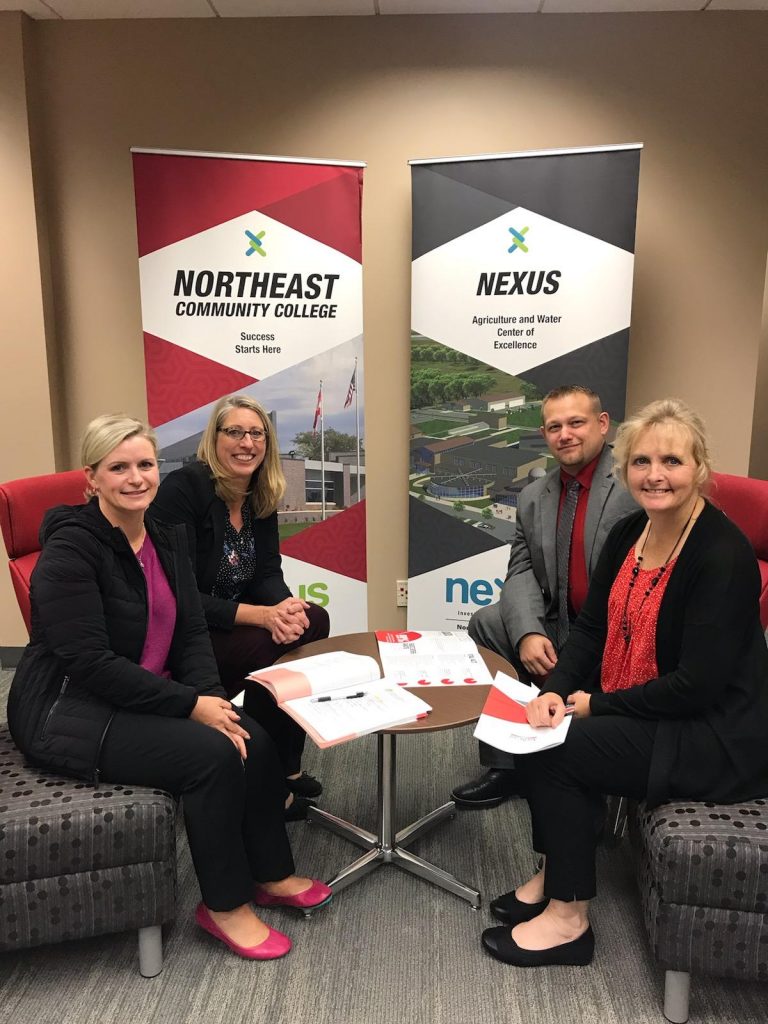
From left: Tara Smydra, Tracy Kruse, Tyler Vacha and Corinne Morris (courtesy photo).
Check out the coverage Hybrid 85 received on the news!
Click here: https://www.3newsnow.com/news/local-news/upstart-business-looking-to-help-farmers-save-money-through-corn-seed
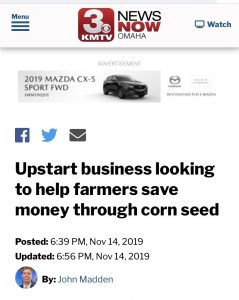
Nate Belcher would enjoy visiting with you about all his exciting offerings. Also, as the fall fertilizing season is well underway, now is a great time to consider safer options for you and your soil. Contact Nate for those options, seed, consulting and so much more at: (402) 580-0015. Thank you, Del Ficke
Considering Market Position with Impending Election
By Kirk Peterson
 In this newsletter, I wanted to take some time to write about assessing your position within the market when it comes to the impending election.
In this newsletter, I wanted to take some time to write about assessing your position within the market when it comes to the impending election.
As we approach the Holidays, most of our minds are filled with the excitement of seeing family and spending quality time together! The last thing most of us want to think about is how our investments are doing in regards to gains and losses within our portfolio.
Speaking from the side of general investment markets, we have experienced a fairly good year. I know the same can’t be said from the commodities side. That is why it is wise to diversify your investments. When it comes to general investments, I would encourage those of you who have benefited from the gains up to this point to speak with a professional on how to possibly lock in those gains for the year.
For most, this is a conversation with your financial professional about reallocating some things within your portfolio to a slightly-less volatile approach until we see what’s going to happen with China and our presidential election.
For those who have placed money in products and strategies that allow you to “lock-in” or exercise a “put” on your gains, I would strongly encourage a conversation with your financial professional to see if this is a time to exercise those options.
If you would like more information about these products and strategies, I am a phone call away and would welcome the opportunity to serve you.
Kirk Peterson
Phone: (402) 519-0330
Fax: 308.528.1132
401 E. 4th St. #101
Minden, NE 68959
kpeterson@sellefinancial.com
https://www.petersonassetprotectiongroup.com/
We are excited to see the Hendls in the news again as well!
Click here: https://www.cfra.org/news/191113/hendls-find-happiness-working-toward-sustainable-ag
We couldn’t be more excited to have them as part of our team and to celebrate their Anchor Meadow Farm successes as well.
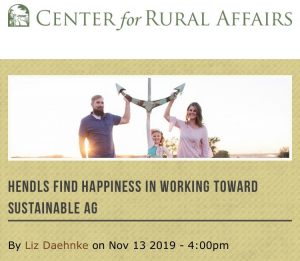
Also, make sure to come and see the Hendls at the Seward, Neb. winter farmers’ market series at the Seward Library located at 233 South 5th Street from 9:30 a.m. to 12:30 p.m. on December 14 and January 18. They will have raw wildflower honey, lotion and lip balms as well as Graze Master Beef.
Slow Cooker Beef Stew
By Karly on Pinterest
“I made this recipe with Graze Master Beef and it was a big hit! It’s super easy and a wonderful, warm comfort food for cold winter days ahead.” Alyssa Ficke
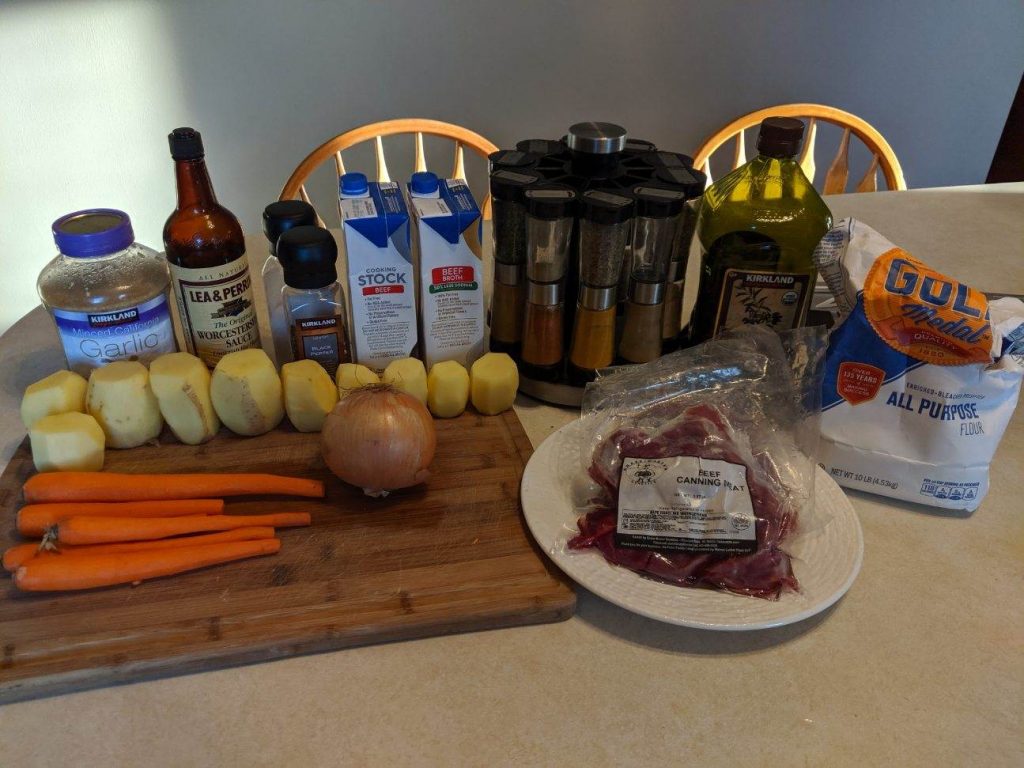
All the ingredients you need.
Ingredients:
1 pound of stew meat
1/4 cup of flour
1 tablespoon of seasoned salt
1 tablespoon of olive oil
4 medium, yellow potatoes
4 large carrots
1 sweet onion
2 cloves garlic
1 bay leaf
2 teaspoons of black pepper
2 cups of beef broth
1 tablespoon of Worcestershire sauce
Instructions:
Add the beef to a medium bowl with the flour and seasoned salt. Shake in a bag to coat.
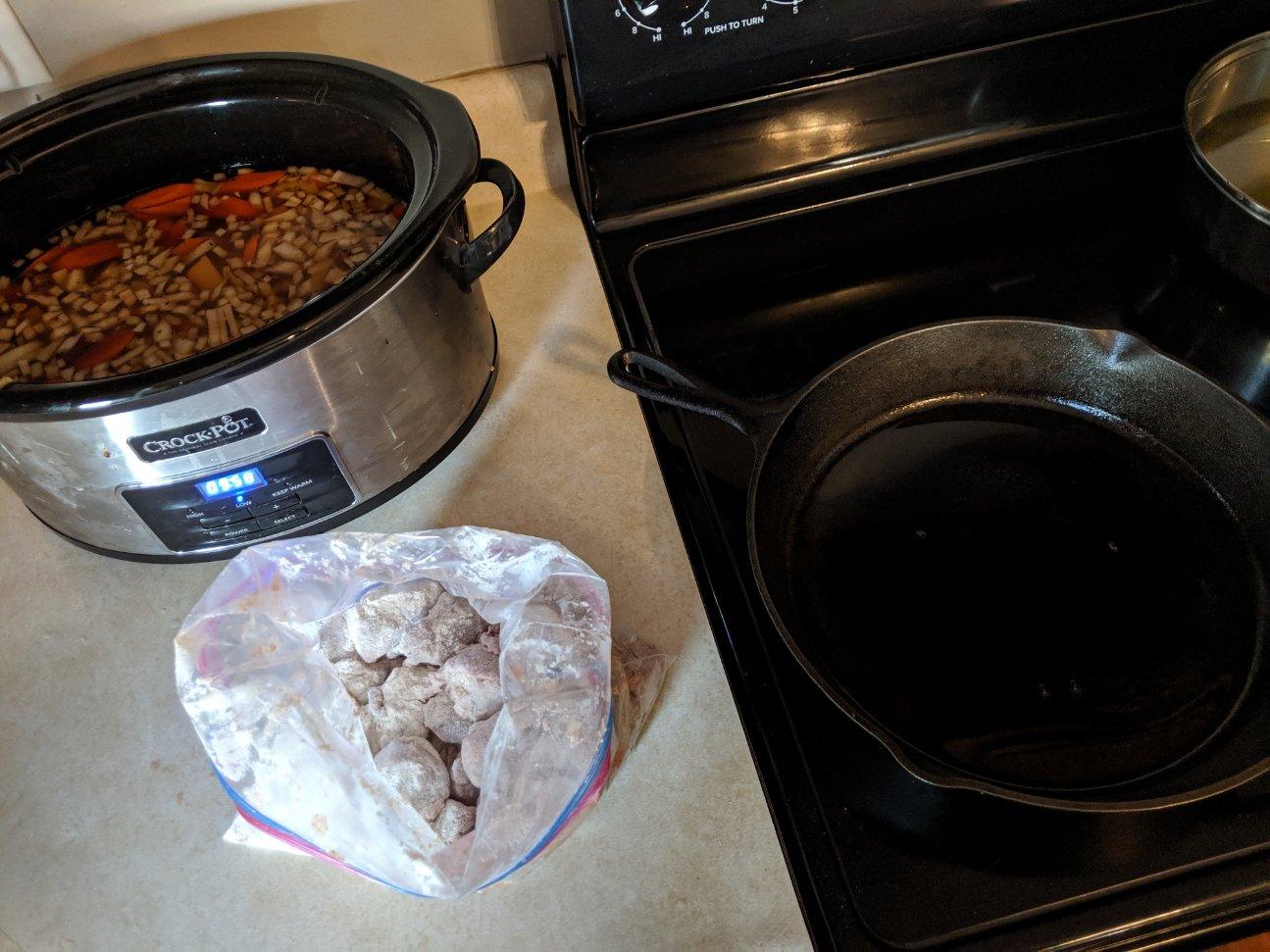
Heat the olive oil in a large skillet over medium high heat. Add the coated beef and cook until browned, stirring as needed.
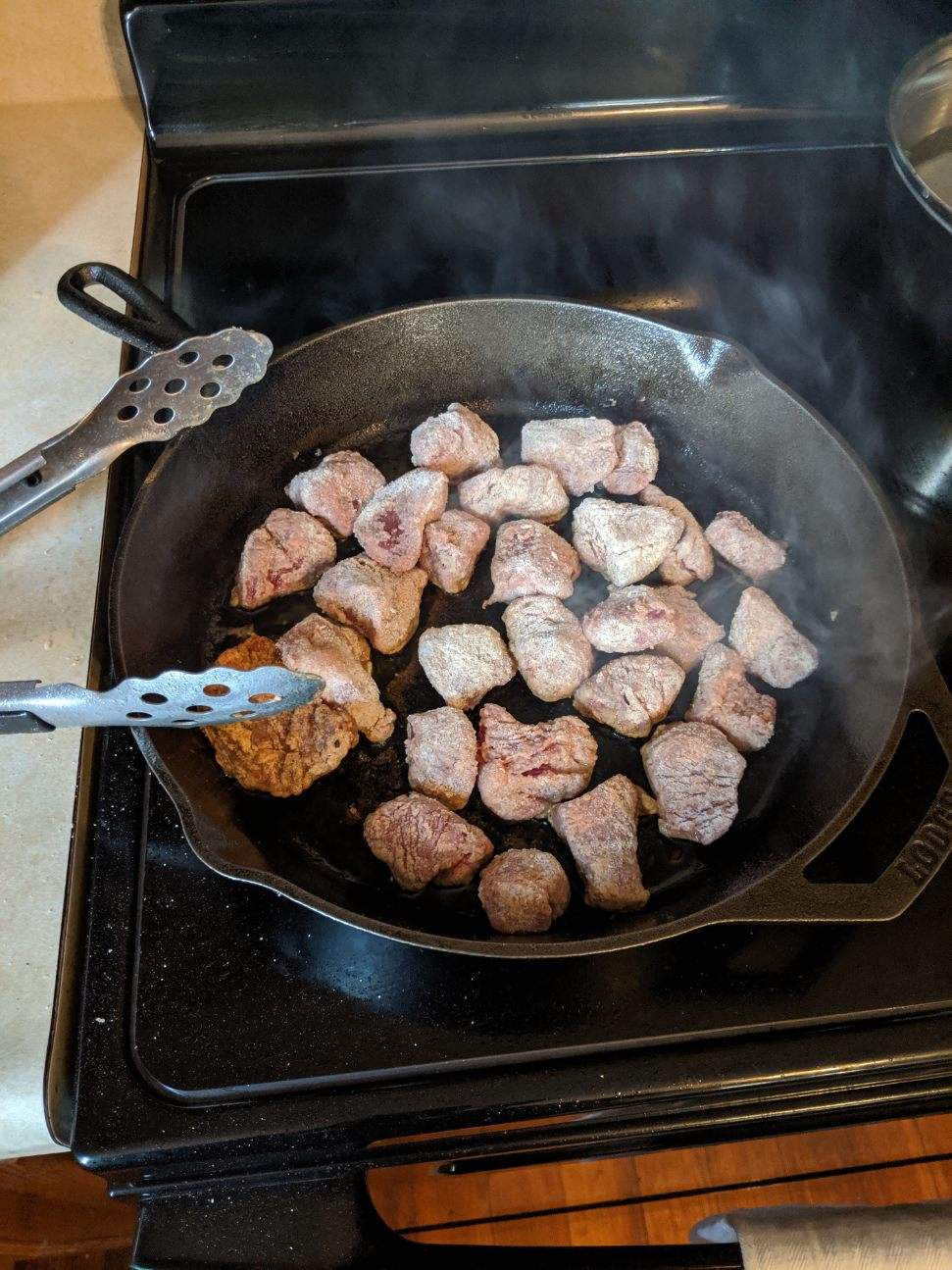
Place meat in slow cooker.
Peel and dice the potatoes, carrots, and onion. Mince the garlic. Add to the slow cooker with the bay leaf.
Sprinkle the pepper on top and pour the broth and Worcestershire sauce into the slow cooker.
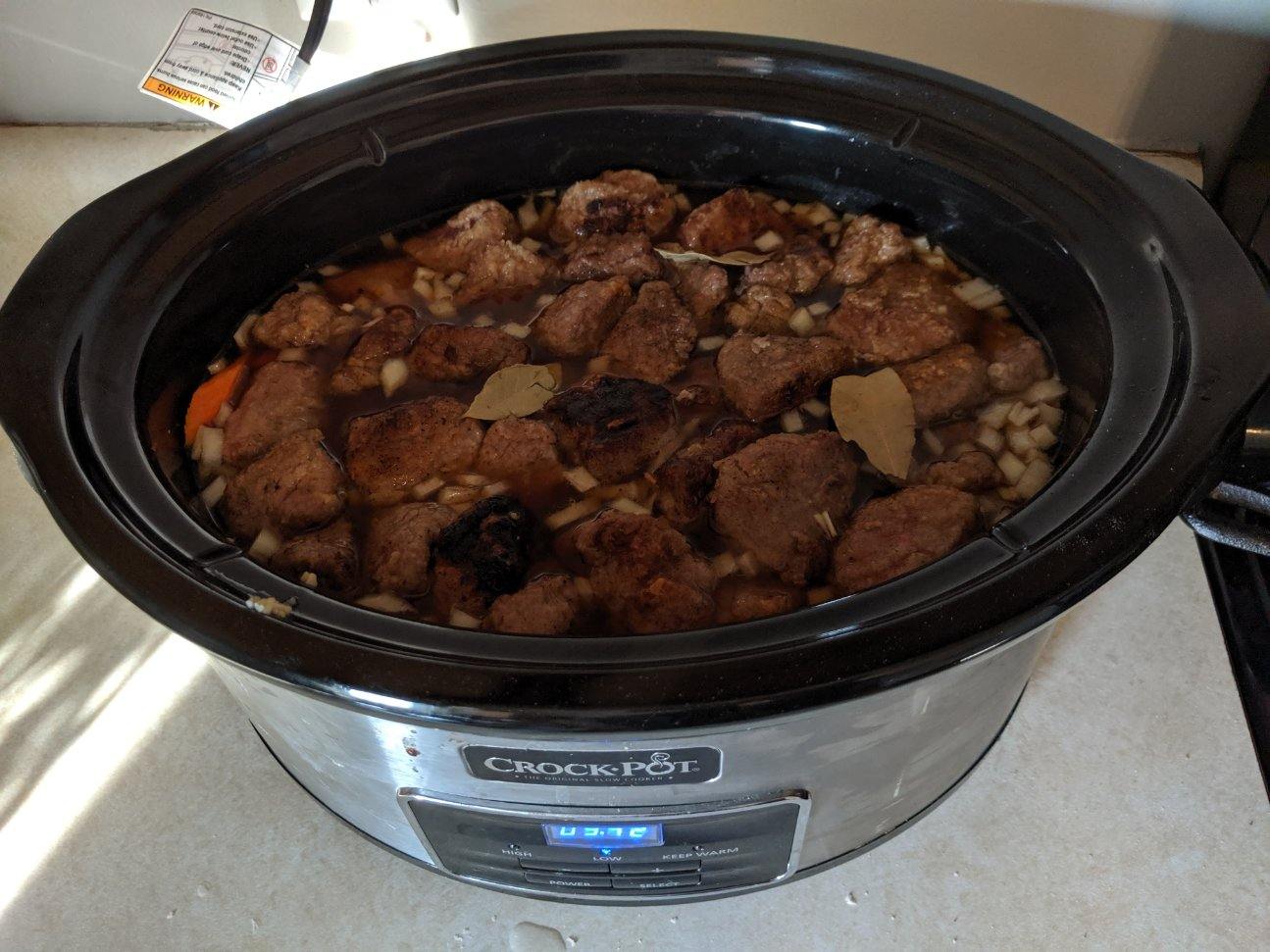
Cook on low for 10 to 12 hours or high for six to seven hours.
Remove the bay leaf, stir well, and add salt and pepper as needed before serving.
If you want to place a meat order of any type, please contact Alyssa at (951) 212-5114.
You can also contact Emely Hendl for Graze Master Beef orders and their wonderful honey and great homemade honey products. Her number is: (402) 613-5483.
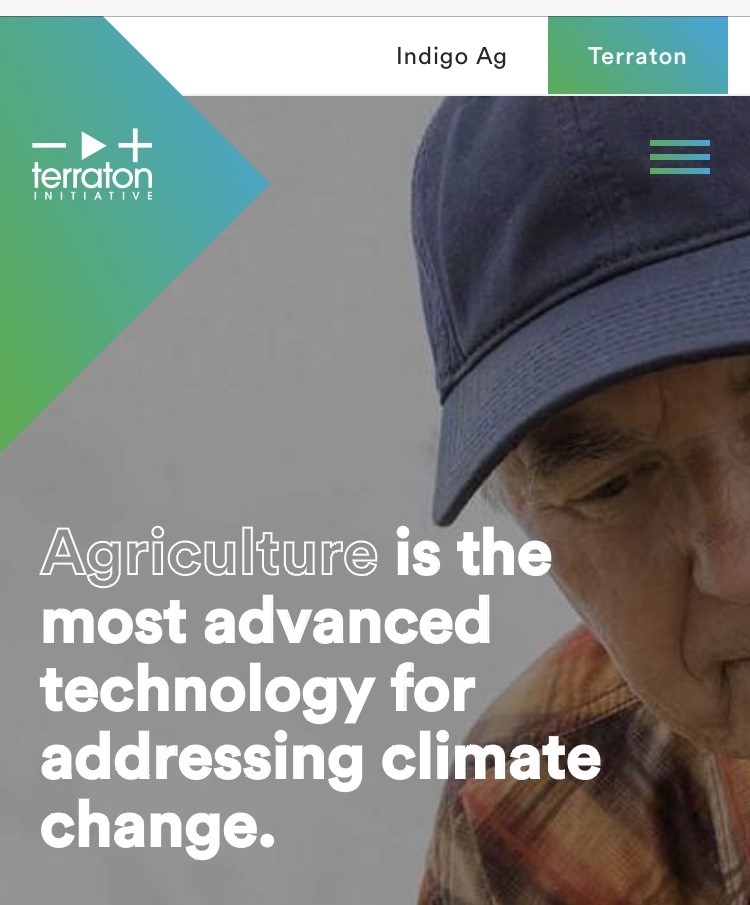
I am excited about the Terraton Initiative that is part of Indigo Ag’s efforts to improve the environment. You can learn more by clicking here: https://terraton.indigoag.com/
Feel free to call me, Del Ficke, at (402) 499-0329. My focus is Regenerative Livestock for this company and I am looking forward to sharing more throughout the coming months. Livestock are a critical part of the carbon sequestering circle and soil health overall.

Happy Thanksgiving from Ficke Cattle Company! See you in December.
